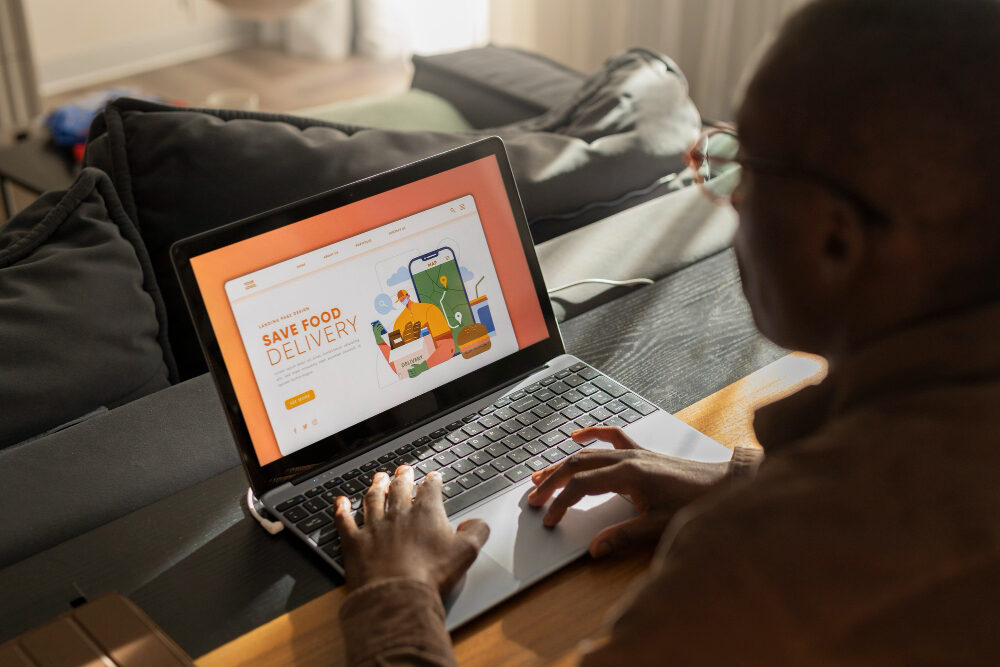In cities like Lagos, where ambition is high but tech budgets are tight, many Nigerians still depend on entry-level laptops like the HP 14 Celeron 4GB. It’s the kind of device you’ll find in homes, cafés, co-working spaces, and student dorms. Affordable and familiar, yes, but in 2025, that same affordability often comes with a cost.
Today’s work and learning environments rely heavily on cloud-based tools like Zoom, Canva, Google Docs, and Figma. These apps are powerful, but they demand RAM, storage, and processing power that older, low-spec laptops often struggle to provide.
This article dives into a reality many Nigerians face:
Can the HP 14 Celeron 4GB still keep up in 2025’s cloud-first world?
From everyday tasks to survival tips and emotional fatigue, we break down where the HP 14 Celeron still shines and where it might be time to move on. Whether you’re a student, remote worker, small business owner, or someone trying to stretch every naira, this guide is for you.
Understanding the HP 14 Celeron 4GB: The Hero of Budget Users
Affordable. Accessible. Compact. The HP 14 Celeron 4GB is common in Nigeria’s tech scene. It’s a go-to laptop for students, freelancers, and small business owners. Its specs are humble: Intel Celeron processor, 4GB RAM, and 500GB HDD or sometimes a modest SSD. But in 2025, the cloud has changed everything.
Modern Cloud Apps: Power, Possibility, Pressure
Today’s cloud apps are beautiful beasts. They sync. They compute. They stream. They demand. Tools like Canva, Zoom, Google Workspace, and Figma offer magic. But they crave resources. Even browsers like Chrome and Edge are memory monsters. This leaves many asking: Can the HP 14 Celeron handle this pressure?
Read Also: Should You Move Your Business to the Cloud?
HP 14 Celeron Use Cases in 2025
Searches for “HP 14 Celeron use cases” in Nigeria are surging. Why? Because users want to know what’s still possible with low-end laptops Nigeria still heavily depends on.
Let’s break it down.
- Web Browsing and Email
Yes, it’s still possible. Lightweight browsers like Opera or Brave help.
Avoid multiple tabs. Keep extensions minimal. - Word Processing and Sheets
Google Docs and Sheets can work. Use basic modes. Avoid large data files.
Microsoft 365 online is also lighter than the desktop version. - Video Calls
Zoom? Yes, but close other apps. Lower the resolution. Use headphones to reduce processor load.
Google Meet works slightly better in browsers like Firefox. - Streaming and Online Learning
YouTube at 480p? Still good. Coursera and Udemy run well in low-res.
Local video downloads work better than constant streaming.
- Basic Graphic Design
Canva in low-resolution mode works. Avoid animations or video-heavy projects.
Figma? Very slow. Consider lighter alternatives or mobile apps.
When to Upgrade: Signs of Strain
- If your laptop freezes when opening tabs, that’s a sign.
- When storage hits 90% full, speed drops drastically.
- If fans run constantly or the battery dies in under an hour, consider an upgrade.
Market Trends: Low-End Laptops Still Matter
In Nigeria, 54% of laptop users still rely on 4GB RAM devices. The demand for “low-end laptops in Nigeria” is rising due to affordability and power constraints. Financially, the HP 14 Celeron sells three times faster than mid-range devices in tier-2 cities. Why? Price. Simplicity. Familiarity.
Make It Work: Practical Tips
- Use lightweight browsers: Try Brave or Opera Mini.
- Block ads: Save memory and boost page speed.
- Install local apps: Avoid browser versions of tools where possible.
- Disable startup apps: Free up system resources.
- Keep storage under 70% full: Use external drives.
- Use performance mode: Windows 11 offers this in system settings.
- Regularly clean system files: Use Disk Cleanup or C-Cleaner.
The Emotional Cost of a Slow Device
It’s not just about speed. It’s about mental strain. A lagging device can hurt productivity. It can make users feel left behind. In a world moving fast, tech should empower, not frustrate.
A Hopeful Future: Affordable Doesn’t Mean Useless
Tunde now uses his HP 14 Celeron with Adler’s optimisations. He uses Notion offline. He sends newsletters with Mailchimp Lite. He earns, learns, and creates.
Sure, it’s not blazing fast. But it works.
Final Thoughts:
The HP 14 Celeron may not run AI models. But it can still run dreams. With the right habits and support, it’s still relevant in 2025.
Need help making your laptop work harder?
Call us today on +234 (0) 901 994 4449, or visit www.adlertechnologies.com.ng.
Don’t let tech hold you back. Let Adler move you forward.




